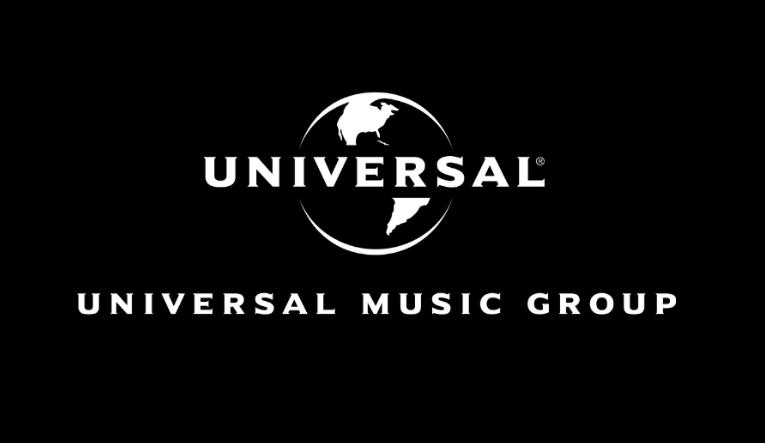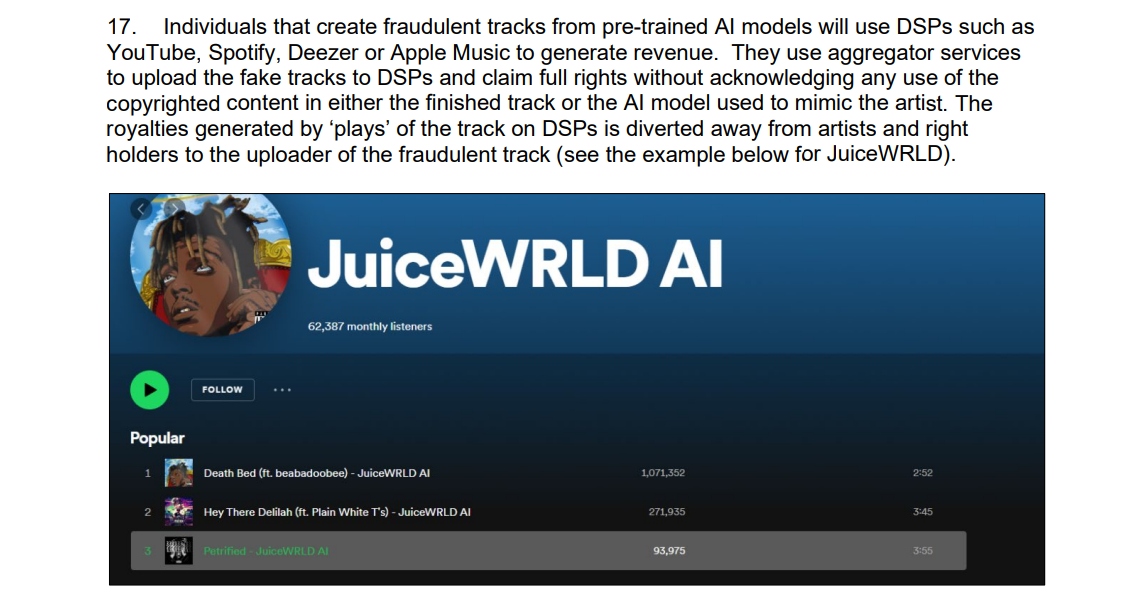Home > Technology >
In common with most technologies, Artificial Intelligence can be used for both good and bad. Universal Music Group says that it recognizes its full potential. The company uses AI for marketing, production, and security, but also cautions against misuse. The label says that fraudsters are generating and selling fake ‘pre-release tracks’ of popular artists for thousands of dollars.

Artificial intelligence has the potential to make our lives more efficient, entertaining, and productive.
On the flip side, it also presents several threats. This ranges from complex existential worries to concerns about AI-related copyright infringement, which is already widespread.
Tthese copyright concerns will be discussed next month at a meeting of WIPO’s Advisory Committee on Enforcement, where several stakeholders will present their thoughts. This includes Universal Music Group (UMG), which sees both the good and bad aspects of this rapidly developing technology.
UMG’s Vice President of Global Content Protection, Graeme Grant, lays out the music company’s perspective in a detailed contribution sent to WIPO in advance.
According to Grant, UMG broadly embraces AI technology and has already obtained several patents in this area. Among other things, the company uses AI to fuel the creative process, optimize production, and as a marketing tool. At the same time, it also presents new challenges.
“While AI holds great potential for innovation and expansion, generative AI also poses great risks – not only to creators but to broader society, as well,” Grant notes.
AI Generated Tracks are Booming
AI is increasingly used to copy music and generate tracks based on the likeness of popular artists, such as Drake vs The Weeknd’s ‘Heart on my Sleeve‘. These tracks are created using models trained on copyrighted music, which can be a problem if these datasets and models are shared.
“[O]ne online community has created a spreadsheet containing over 100 pre-trained vocal models, relating to specific artists, that have been uploaded to services like Megaupload and Google Drive and can be downloaded and used by anyone of their 15,000 members,” Grant writes.
While UMG might not get too upset when people experiment purely for personal use, the company believes that a line is crossed when AI-synthesized tracks are made available to the public, especially when that includes a commercial element.
In the past few months, the number of AI-generated tracks uploaded to online music platforms such as Spotify increased by 175%, UMG found, and this trend could very well continue in the future.
In some cases, people use artist-inspired names such as “Juice AI” and “Drake AI” to share the tracks on legitimate music services. These uploads generate royalties for every play, which don’t go to the original artist and label.


These fake ‘pre-release’ sales have been going on for a while. Vice previously highlighted a scammer who reportedly made thousands of dollars by selling AI-generated Frank Ocean tracks. But that’s just the tip of the iceberg.
Fraudsters Scam Pirates
UMG is protecting its bottom line with these comments, but the company notes that prospective pirates can be harmed as well. There’s a lively market for leaked pre-release music and scammers are exploiting the demand to generate profit.
Through the use of AI technology, the scammers create musical snippets that impersonate popular artists. These are then sold through pre-release forums as the real deal, supported by claims that the tracks were obtained through hacking or phishing.
Some people apparently fall for this scam, paying thousands of dollars to get their hands on fresh tracks, not knowing that they’re actually faked.
“Believing these tracks to be authentic, users often engage in ‘group buys’, pooling their resources to meet the fraudster’s inflated asking price, which can range from USD5,000 to 30,000.
“The users are often unaware that the track in question was not created by the artist, but rather by AI technology,” Grant adds.
Good AI
Luckily it’s not all doom and gloom. UMG also shares many examples of how it uses AI to its advantage. This includes the creation of the new Beatles recording “Now and Then” released last month.
AI technology is also used to help the company detect potential infringements, and to stave off cybersecurity threats.
“The UMG security team uses AI to protect the employees, artists and stakeholders against cybersecurity threats which are vast in number and growing in sophistication,” Grant writes.
The music company’s overview makes it clear that, like many technologies before it, AI can be used for good and bad. At the moment, UMG doesn’t believe that copyright regulation needs to be updated. That said, all stakeholders have to remain vigilant to prevent potential problems.
—
A copy of the WIPO contribution, prepared by UMG’s Vice President of Global Content Protection, Graeme Grant, is available here (pdf)
This post was originally published on this site be sure to check out more of their content







